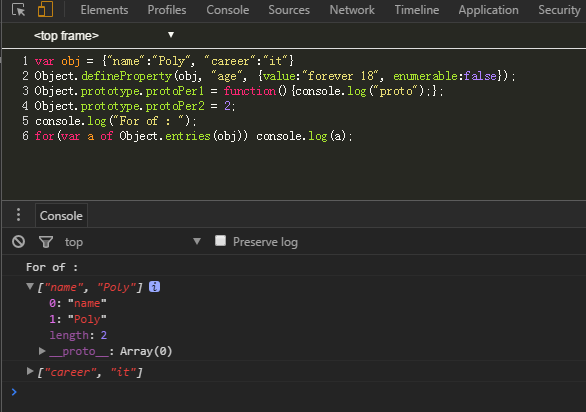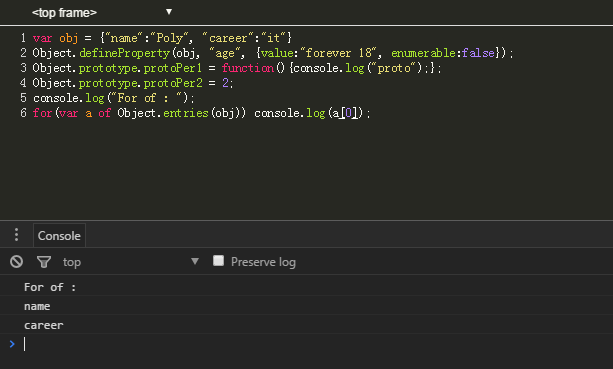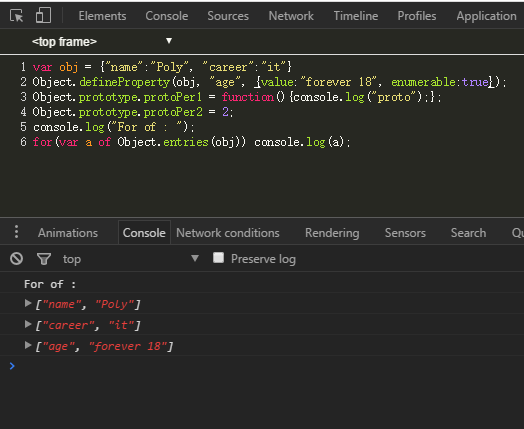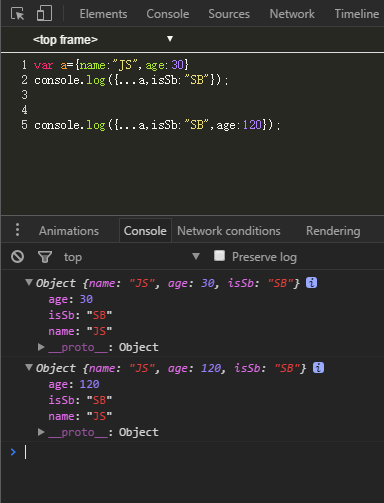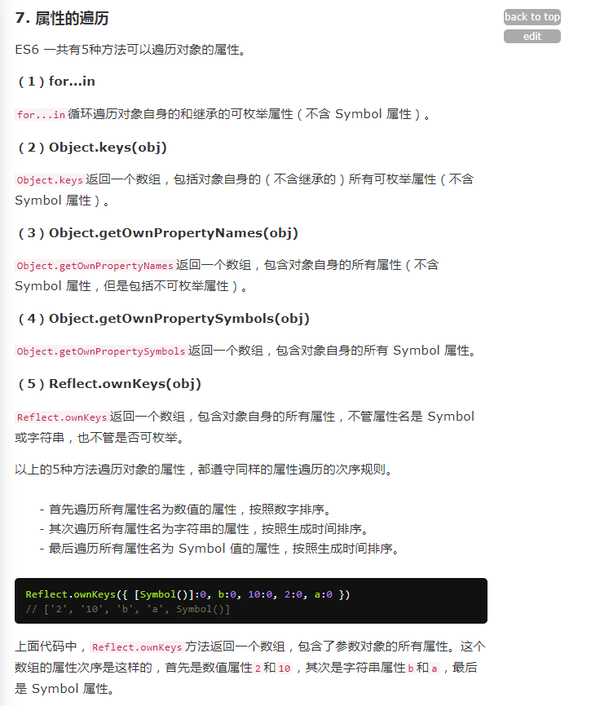
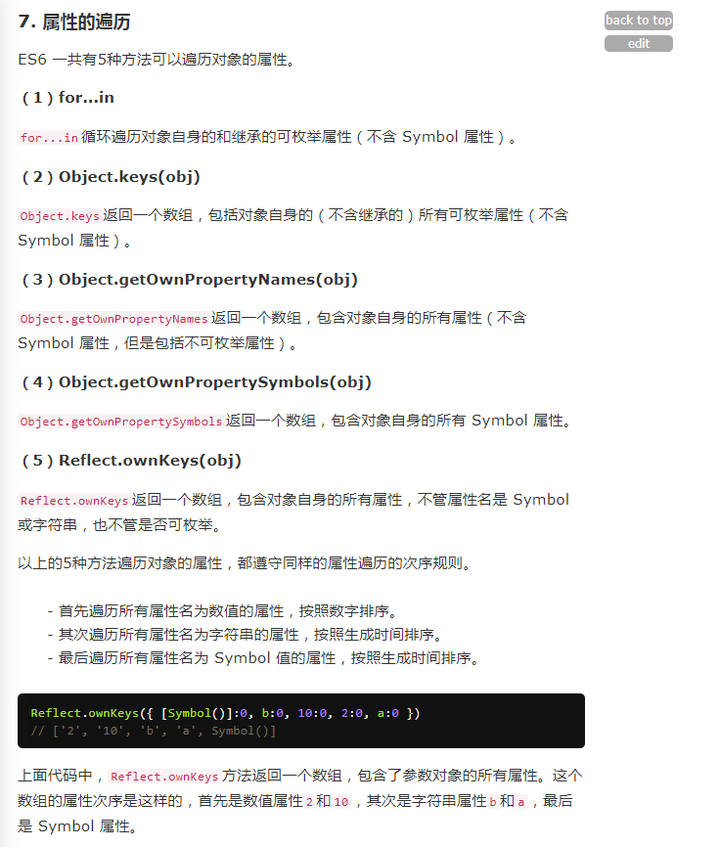


Object.keys(obj),返回一个数组,数组里是该obj可被枚举的所有属性。请看示例:
示例一:
function Pasta(grain, width, shape) {
this.grain = grain;
this.width = width;
this.shape = shape;
this.toString = function () {
return (this.grain + ", " + this.width + ", " + this.shape);
}
}
console.log(Object.keys(Pasta)); //console: []
var spaghetti = new Pasta("wheat", 0.2, "circle");
console.log(Object.keys(spaghetti)); //console: ["grain", "width", "shape", "toString"]
示例二:
var arr = ["a", "b", "c"];
console.log(Object.keys(arr)); // console: ["0", "1", "2"]
var obj = { 0 : "a", 1 : "b", 2 : "c"};
console.log(Object.keys(obj)); // console: ["0", "1", "2"]
var an_obj = { 100: "a", 2: "b", 7: "c"};
console.log(Object.keys(an_obj)); // console: ["2", "7", "100"]
var my_obj = Object.create({}, { getFoo : { value : function () { return this.foo } } });
my_obj.foo = 1;
console.log(Object.keys(my_obj)); // console: ["foo"]
js中几种遍历对象的方法,包括for in、Object.keys、Object.getOwnProperty,它们在使用场景方面各有不同。
for in
主要用于遍历对象的可枚举属性,包括自有属性、继承自原型的属性
var obj = {"name":"Poly", "career":"it"}
Object.defineProperty(obj, "age", {value:"forever 18", enumerable:false});
Object.prototype.protoPer1 = function(){console.log("proto");};
Object.prototype.protoPer2 = 2;
console.log("For In : ");
for(var a in obj) console.log(a);
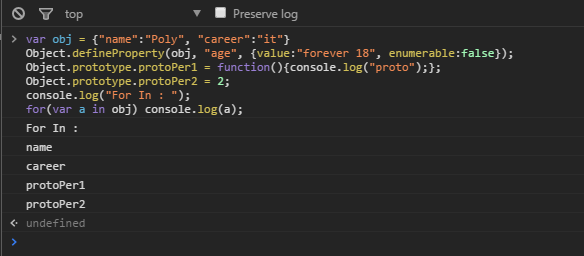
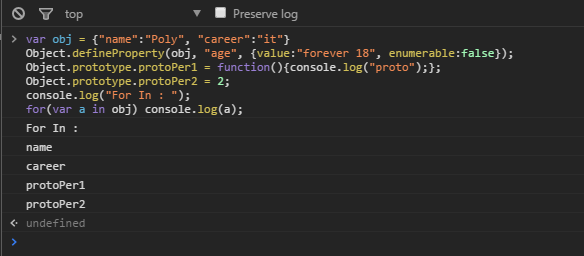
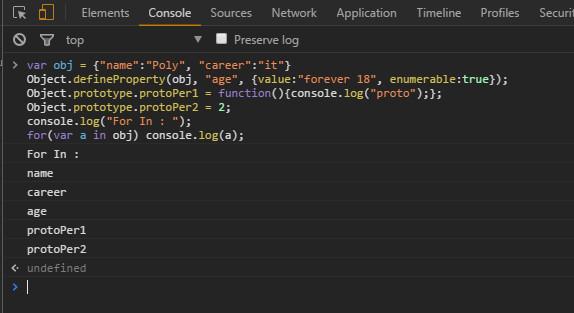
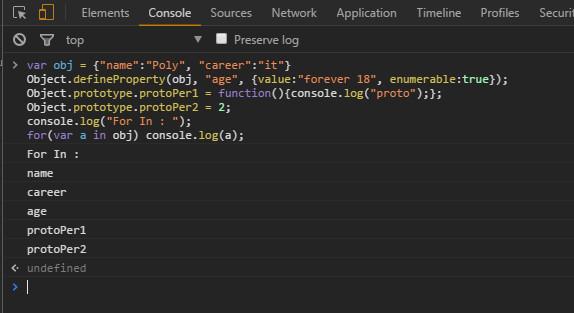
Object.keys
返回一个数组,元素均为对象自有的可枚举属性
var obj = {"name":"Poly", "career":"it"}
Object.defineProperty(obj, "age", {value:"forever 18", enumerable:false});
Object.prototype.protoPer1 = function(){console.log("proto");};
Object.prototype.protoPer2 = 2;
console.log("Object.keys:")
console.log(Object.keys(obj));

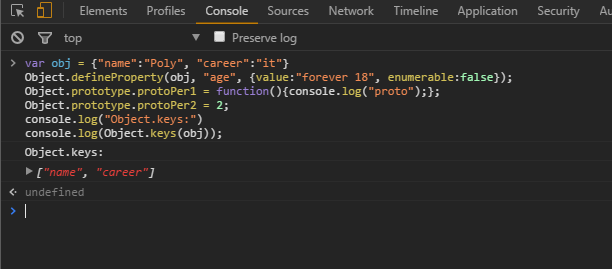
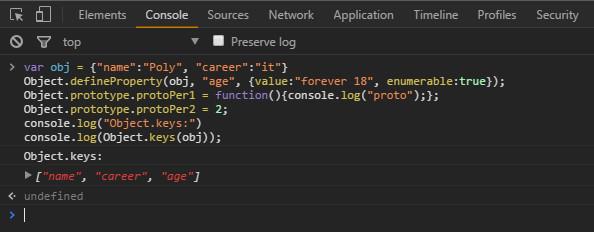
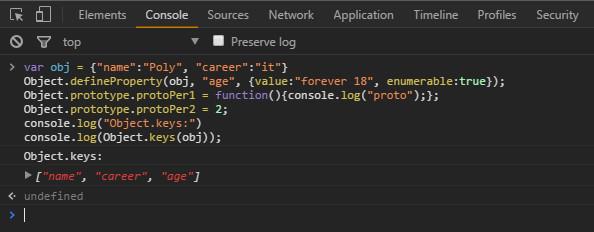
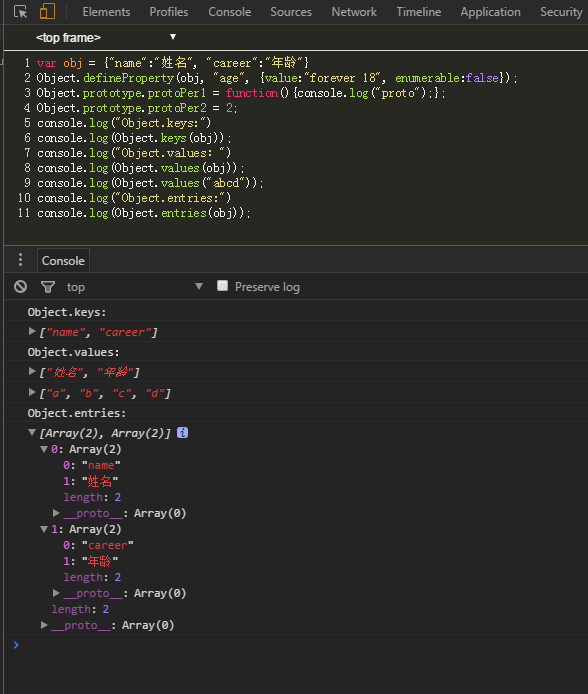
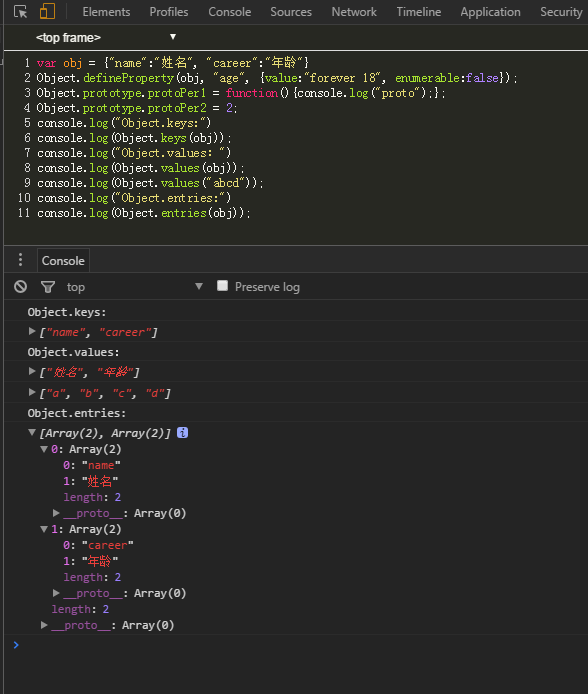
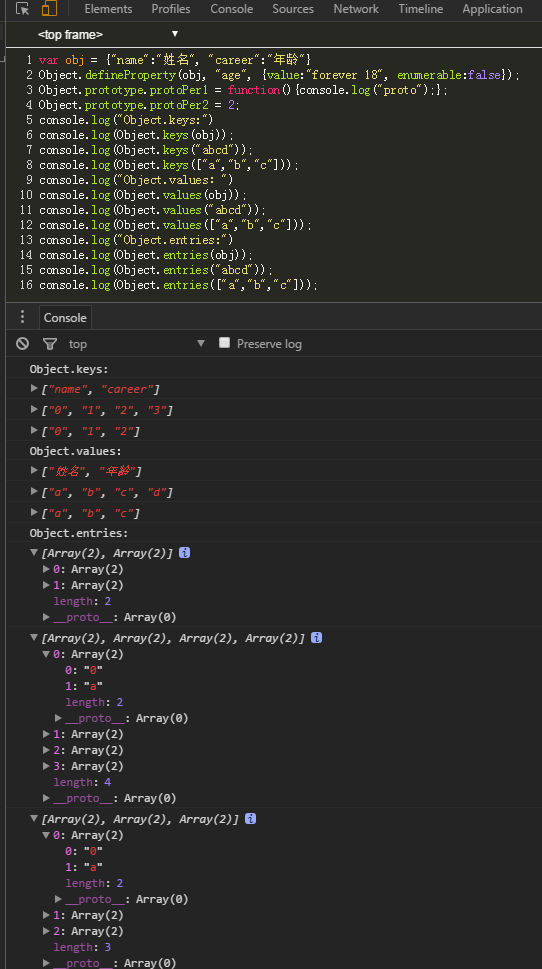
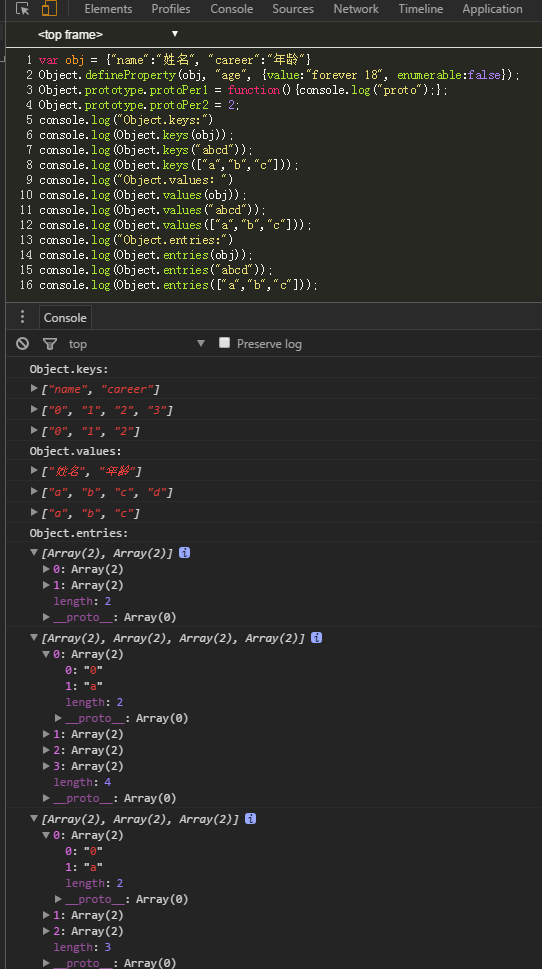
Object.getOwnProperty
用于返回对象的自有属性,包括可枚举和不可枚举的
var obj = {"name":"Poly", "career":"it"}
Object.defineProperty(obj, "age", {value:"forever 18", enumerable:false});
Object.prototype.protoPer1 = function(){console.log("proto");};
Object.prototype.protoPer2 = 2;
console.log("Object.getOwnPropertyNames: ");
console.log(Object.getOwnPropertyNames(obj));
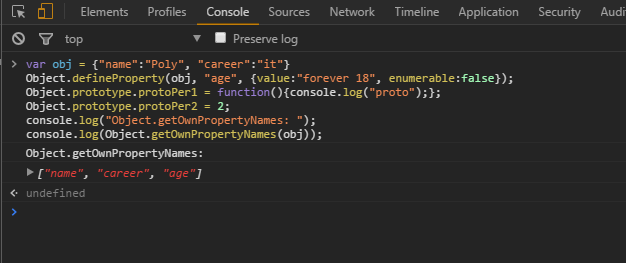
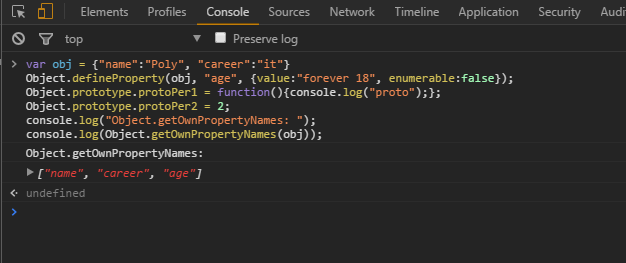
for..of
var obj = {"name":"Poly", "career":"it"}
Object.defineProperty(obj, "age", {value:"forever 18", enumerable:false});
Object.prototype.protoPer1 = function(){console.log("proto");};
Object.prototype.protoPer2 = 2;
console.log("For of : ");
for(var a of Object.entries(obj)) console.log(a);
